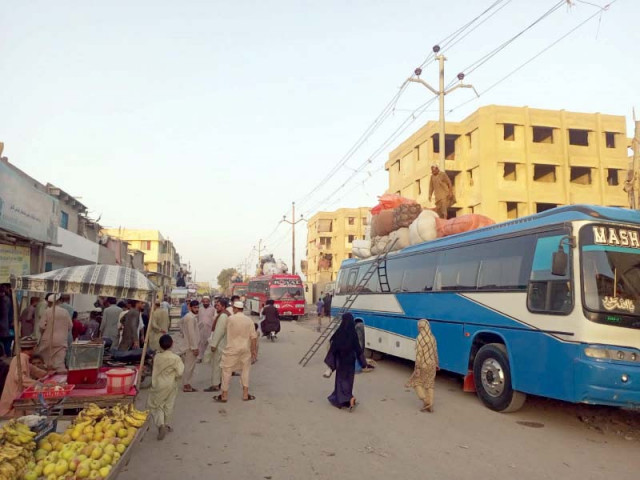Debate on Afghans’ deportation barred over NOC: police
Civil society accuses authorities of high-handedness

The Islamabad police said on Wednesday that it did not raid the community centre which was scheduled to host a discussion on the repatriation of Afghan refugees from Pakistan a day earlier, saying they had gone there to warn organisers against violating Section 144 that was in effect in the capital.
The discussion at ‘The Black Hole’ could not take place after a team of the Ramna police station, led by its Station House Officer (SHO) Alamgir Khan, arrived at the venue and, according to those present there, surrounded it and threatened the organisers with dire consequences.
Veteran politician Afrasiab Khattak, who was one of the speakers, said that the police party arrived a few minutes before the scheduled start and stopped the event claiming that the organisers needed a no-objection certificate (NOC) as Section 144 of the Code of Criminal Procedure (CrPC) was in place.
When it was pointed out that Section 144 was applicable outdoors, Khattak continued, the police resorted to intimidation tactics. “A young man who runs the community hall was made to sit in the police van while we were all threatened with being rounded up and put in prison,” Khattak added.
Also read: US encourages Afghanistan's neighbours, including Pakistan, to accept refugees
Those in attendance pointed out that the community centre had hosted hundreds of events over the past few months and the discussion on Afghan refugees was the first time they had been told to get an NOC.
Khattak said the speakers – including author and researcher Sajjad Zaheer – agreed to court arrest while pointing out to the policemen that these tactics were reminiscent of martial law. However, a magistrate arrived at the scene and apologised to the organisers and ‘defused’ the situation
By this time, Khattak continued, over two hours had elapsed and people who had arrived to listen to the discussion had to leave.
The decision to not allow the discussion to go ahead was heavily criticised, with lawmaker Mohsin Dawar saying the state was not even allowing peaceful discussions on the rights of Afghans.
“They held the speakers and the hall under siege for two hours, resembling unannounced martial law and a clear violation of [the] fundamental right[s],” wrote activist Moniza Kakar on X (formerly Twitter).
“Such tactics are also an alarming indicator of the government’s unwillingness to acknowledge that it is bound by customary international law to protect vulnerable refugees,” the Human Rights Commission of Pakistan (HRCP) said in a statement.
Khattak agreed with the HRCP’s assessment, pointing that while Pakistan wasn’t a signatory to the refugee conventions of 1951 and 167, it was a signatory to conventions on civil and political rights and against torture, under which the treatment currently being meted out to Afghan refugees was illegal.
He cited the recent order of the Islamabad High Court in the case of an Afghan woman who was declared an ‘asylum seeker’ with the court ruling that she could not be incarcerated ‘as Pakistani law recognizes the right to asylum’.
Published in The Express Tribune, October 26th, 2023.


















COMMENTS
Comments are moderated and generally will be posted if they are on-topic and not abusive.
For more information, please see our Comments FAQ